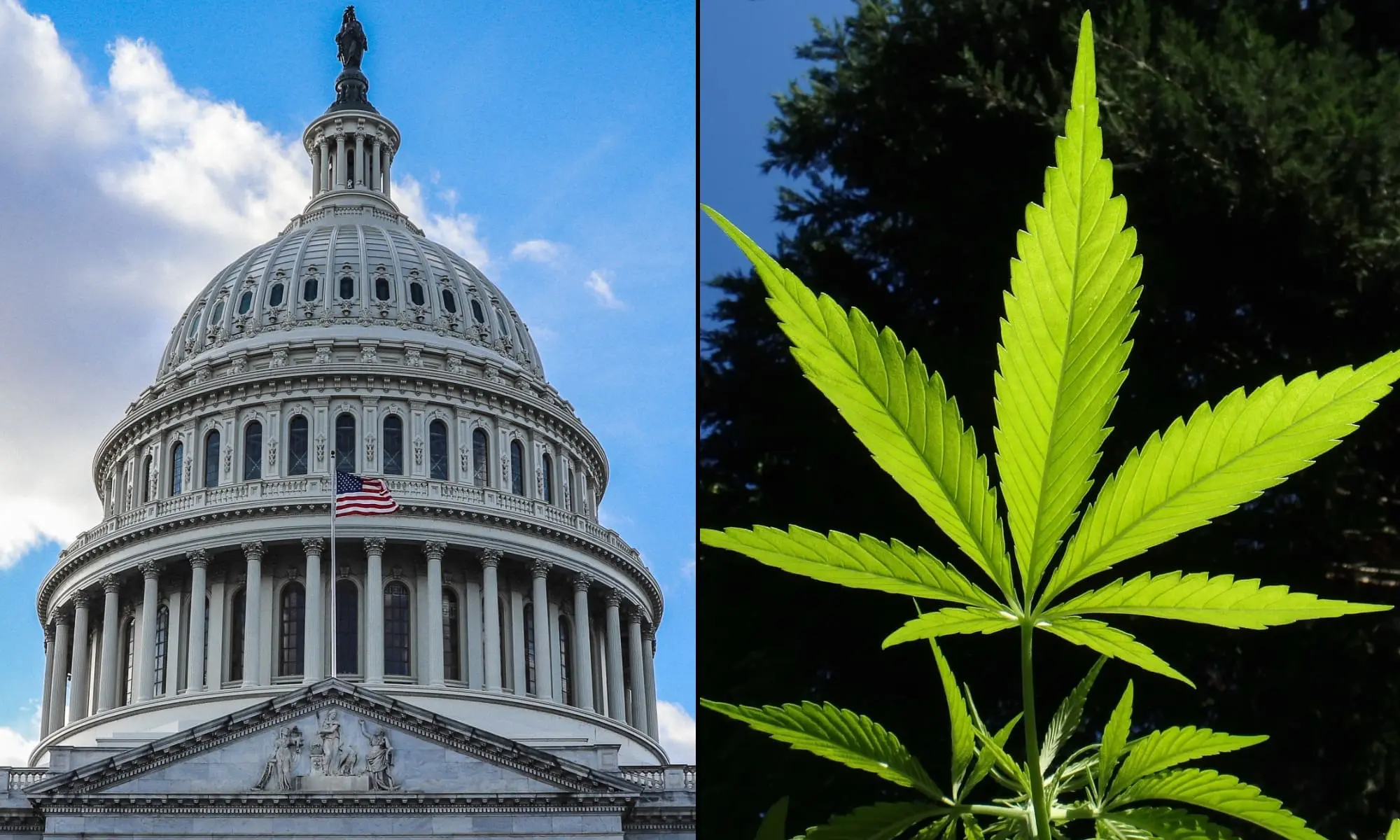Politics
House To Vote On Expanding Marijuana Waivers For Military Recruits, But Separate Hemp Amendment Is Blocked From Defense Bill

A key House committee is allowing an amendment to a must-pass defense bill to expand waivers for military recruits who’ve tested positive for marijuana to proceed to a floor vote, while at the same time blocking another proposal to codify that service members could lawfully use hemp products.
The House Rules Committee on Tuesday advanced the National Defense Authorization Act (NDAA) to consideration by the full body, with one of the two filed cannabis amendments cleared for a vote.
Reps. Dave Joyce (R-OH) and Dina Titus (D-NV), co-chairs of the Congressional Cannabis Caucus, sponsored the amendment on marijuana and military recruitment policy.
The measure acknowledges that the Army and Navy have already “taken positive steps in their work to design and implement a waiver system that permits potential enlistees into the Armed Forces to reapply for enlistment following a positive toxicology test for tetrahydrocannabinol.”
But the amendment calls on the Air Force, Space Force and Marine Corps to follow through, especially “given the ongoing recruitment and retention challenges undermining the Armed Forces readiness goals.”
The proposed change to the NDAA bill would require those military branches to “develop and implement their own permanent waiver system commensurate with the process employed by the Army and Navy.”
It says that the secretary of defense “shall develop a program through which to provide waivers for potential enlistees into the Armed Forces who were not permitted to enlist following a positive toxicology test for tetrahydrocannabinol so that such potential enlistees are permitted to reapply for enlistment.”
Further, the Department of Defense would be required to “assess the feasibility of contacting” prospective enlistees who were previously rejected over cannabis and, “to the extent feasible, develop a plan to contact such potential enlistees.”
Within 180 days of enactment, the defense secretary would need to submit a report to the congressional committees of jurisdiction with a “plan to create, disseminate, and use a clear definition that highlights that all waivered recruits are qualified and eligible to enlist in the Armed Forces, even if they do not meet every enlistment standard, and that existing standards of enlistment allow for waivers.”
The House last year passed a version of the NDAA that would have prevented drug testing for marijuana as a condition of enlistment in the military or for commission as an officer. But it was not included in the final version that was signed into law following bicameral negotiations with the Senate.
Meanwhile, Rep. Tony Gonzales (R-TX) filed the amendment to the latest NDAA that would have made it so the secretary of defense could not “prohibit a member of the Armed Forces from possessing, using, or consuming a product containing hemp or any ingredient derived from hemp if such possession, use, or consumption is in compliance with applicable Federal, State, and local law.”
The Gonzales amendment, which was not made in order for a floor vote, appeared to be responsive to a series of policy updates from various military branches that have banned the use of cannabis, including legal hemp products, by service members.
In February, for example, a memo to Air Force personnel in Massachusetts warned that not only marijuana but also hemp-derived cannabinoids, including CBD and delta-8 THC, are prohibited on military bases and related properties.
In 2022, the Air Force expressed concern that even using CBD-infused hand sanitizer or hemp granola could inadvertently compromise “military readiness.”
After its initial 2019 announcement, DOD more broadly reaffirmed that CBD is off limits to service members in notices published in 2020.
The Navy, for its part, issued an initial notice in 2018 informing ranks that they’re barred from using CBD and hemp products no matter their legality. Then in 2020 it released an update explaining why it enacted the rule change.
The Coast Guard said that sailors can’t use marijuana or visit state-legal dispensaries.
Separately, a general in 2022 said that the Air Force and Space Force were reviewing marijuana policies and considering a “common sense” change that could give potential recruits a pass if they test positive for cannabis.



